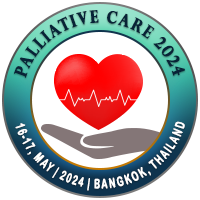
Dr. Nadege Goumkwa Mafopa
Chantal Biya International reference Center for Research on HIV/AIDS prevention and Management, CameroonTitle: Challenges implementing high containment laboratory during an Ebola virus disease epidemic outbreak in resource-limited setting: Our experience in Sierra Leone
Abstract
Early and rapid diagnosis of highly pathogenic agent such as Ebola virus has always been problematic and challenging for the affected communities especially in the developing world. Most often, effective response toepidemic generated by such virulent pathogens implies establishment of well-structured laboratory systems or networks able to implement new diagnostic strategies and laboratory services for better containment of the infectious pathogen. If these measures are peculiar to the developed world where healthcare systems are well organized, it isn’t the case in resource limited settings where healthcare systems are very fragile and inadequately prepared not only to deal with small scale outbreaks talk less of unexpected large-scale epidemic as the most recent one in Western Africa. The unprecedented nature of the 2013-2016 Western Africa outbreaks has highlighted the need of implementing referenced health laboratory systems with established networks between laboratories within countries and even across continents in order to ensure rapid and early diagnosis, which is crucial step in outbreak control.
An Ebola diagnosis and research laboratory was implemented at Holy Spirit Hospital (HSH) Makeni during the last Ebola outbreak in Sierra Leone. A 50-meter square building was initially renovated, rehabilitated and equipped for early and rapid diagnosis of Ebola virus (EBOV) in suspected samples from patients visiting HSH or coming from surrounding EVD holding centers using molecular techniques. Later, two more units of 100 meters squares were added aiming at reinforces the capacity of HSH for better containment, management of EBOV suspected cases but also to ensure biological and immunological follow up of EVD survivors; explore other infectious diseases which may be present within local community. Despite all the challenges, a high containment Laboratory was established at HSH for prompt management of epidemic due to highly pathogenic agent such as EBOV.
Biography
Nadege Goumkwa Mafopa, University of Rome Torvergata Nadege is young scientist enrolled as a public health technician at the Molecular Biology Laboratory of the “Chantal Biya” International Reference Centre for research on HIV/AIDs prevention and management. She is member of the team working on Immune genetic and molecular characterization of viral hepatitis B, C et D infections and coinfection with HIV/AIDS. Their work on viral hepatitis aimed at contributing to implement the national program of mother to child prevention of viral hepatitis. During her Master, Nadege evaluated the performance of four virological tests for early infant diagnosis of HIV infection. The aim was to implement a cost-effective approach for early infant diagnosis of HIV infection in Cameroon, a low-income country with high viral diversity.
She gained experience working in public health emergency state to enhance control measures against epidemics during the Western Africa Ebola virus disease outbreak. Her contribution’s fighting this epidemic in Sierra Leone aimed at implementing a Molecular and Immunology diagnostic laboratory in Holy Spirit Hospital, Makeni, while highlighting the major challenges encountered in such a resources limited setting.

